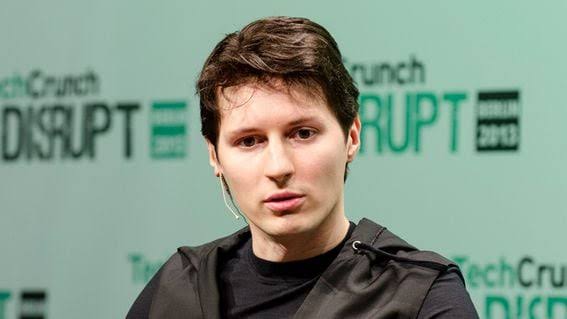Telegram CEO Pavel Durov Has Been Released From Police Custody, What Next?

Pavel Durov, the CEO and founder of the popular messaging app Telegram, was recently released from police custody in France. His detention and subsequent re...
Body
Pavel Durov, the CEO and founder of the popular messaging app Telegram, was recently released from police custody in France. His detention and subsequent release have garnered significant attention due to the high-profile nature of the case and the serious allegations involved.
Durov was detained at Le Bourget airport near Paris on Saturday, August 24, 2024, under an arrest warrant issued by French authorities. The warrant was part of a judicial inquiry that began last month, involving 12 alleged criminal violations. These allegations included complicity in selling child sexual abuse material, drug trafficking, fraud, abetting organized crime transactions, and refusing to share information or documents with investigators when required by law.
Under French law, Durov could be held in custody for questioning for up to 96 hours after his arrest. His police custody order was extended on Monday evening for an additional 48 hours, giving authorities until Wednesday, August 28, 2024, to either charge or release him. The Paris prosecutor's office confirmed that Durov's detention was extended to allow for further questioning and investigation.
The arrest and detention of Durov have sparked outrage and controversy, particularly in Russia, where some government officials have called the move politically motivated. They argue that it reflects a double standard on freedom of speech by Western countries. This reaction is notable given that in 2018, Russian authorities attempted to block Telegram but ultimately failed, lifting the ban in 2020.
French President Emmanuel Macron addressed the situation, stating that Durov's arrest was not politically motivated but rather part of an independent investigation. Macron emphasized that France is committed to freedom of expression but that such freedoms must be upheld within a legal framework to protect citizens and respect their fundamental rights. The UAE Foreign Ministry also expressed concern, stating that it was closely following the case and had requested that France provide Durov with all necessary consular services.
Durov's arrest has also drawn reactions from other countries where Telegram is widely used. In Iran, for example, the platform remains popular despite being officially banned. The arrest prompted comments from Iran's supreme leader, Ayatollah Ali Khamenei, who praised France for being strict against those who violate governance of the internet.
Following his release, Durov and Telegram issued statements defending the platform's practices. Telegram asserted that it abides by EU laws and that its moderation practices are within industry standards and constantly improving. The company described the allegations as absurd, arguing that it is unreasonable to hold a platform or its owner responsible for the misuse of the platform by its users.
The case against Durov highlights the ongoing challenges and complexities of regulating digital platforms and balancing freedom of expression with the need to prevent illegal activities. As the investigation continues, it remains to be seen what further legal actions, if any, will be taken against Durov and Telegram.
This situation underscores the broader debate about the responsibilities of tech companies in monitoring and controlling the content shared on their platforms. It also raises questions about the extent to which governments should intervene in the operations of these companies to ensure compliance with national and international laws.
If you have more questions or need further information, feel free to ask in the comments section!
more on News
-
No one is replied to this thread yet. Be first to reply!
